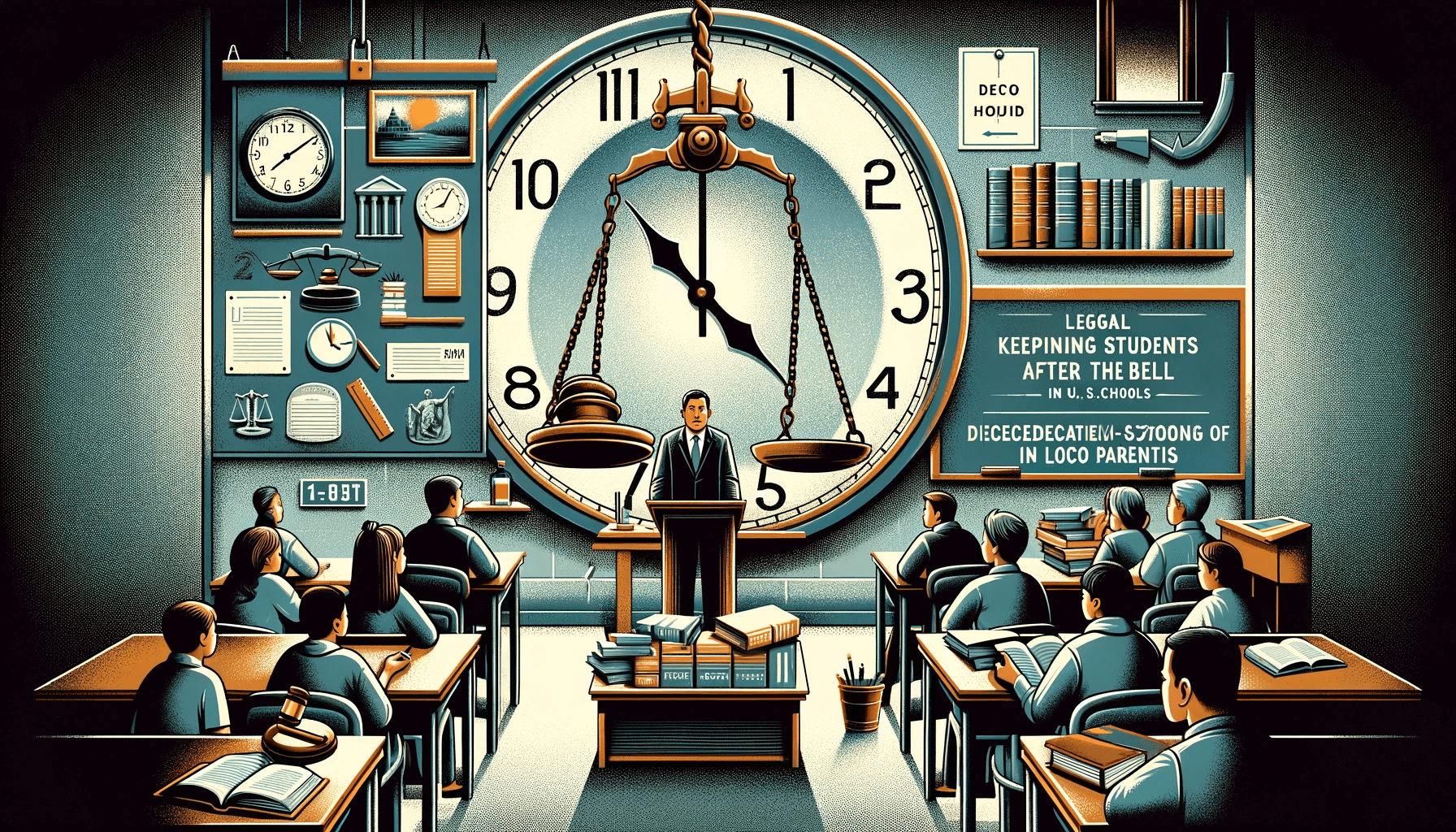The ringing of the school bell signals the end of a class, but it sometimes sparks a contentious legal question: Is it illegal to keep students after the bell? This issue intertwines educational policies, legal doctrines, and students’ rights. This article offers an objective, lawyerly analysis of the topic, weighing in on various legal perspectives and state-specific guidelines in the U.S.
Understanding In Loco Parentis
Central to this discussion is the legal doctrine of ‘in loco parentis,’ a Latin term meaning ‘in the place of a parent.’ This principle grants educational institutions certain parental rights over students during school hours. Under this doctrine, schools assume a degree of responsibility and authority for students, similar to that of parents, which includes maintaining discipline and ensuring safety.
Federal and State Educational Laws
There is no explicit federal law in the U.S. that addresses the issue of detaining students after the bell. However, various state laws and school district policies may influence this practice. These laws and policies often aim to balance the school’s responsibility to educate and maintain order with the rights and welfare of the students.
Case-by-Case Basis and Reasonability
The legality of holding students after the bell can depend on several factors, including the reason for detention and its duration. Generally, short detentions for educational or disciplinary purposes are deemed reasonable. However, excessively long detentions without a valid reason may be challenged as unreasonable or disproportionate.
School Policies and Regulations
School policies play a crucial role in determining the guidelines for detaining students. These policies vary widely across different school districts and states. While some schools may have specific rules about the bell’s authority, others leave it to the teacher’s discretion.
Potential Legal Implications
Detaining students after the bell, especially without just cause, can have legal implications. If it infringes on students’ rights or is deemed as a form of unreasonable punishment, parents or guardians may have grounds to raise legal concerns or complaints.
Students’ Rights and Welfare
The rights and welfare of students are paramount. Schools must ensure that detaining students does not adversely affect their well-being, including missing subsequent classes, school buses, or extracurricular activities.
Best Practices for Educators
For educators, understanding the balance between authority and students’ rights is key. Best practices include clear communication of class rules, fair implementation of disciplinary actions, and awareness of the legal boundaries of their authority.
Conclusion
In summary, while there is no straightforward federal law prohibiting the detention of students after the bell, the practice is subject to state laws, school policies, and the doctrine of in loco parentis. Educators must navigate these legal waters carefully, ensuring that their actions are justifiable, reasonable, and in the best interests of their students.









Leave a Reply